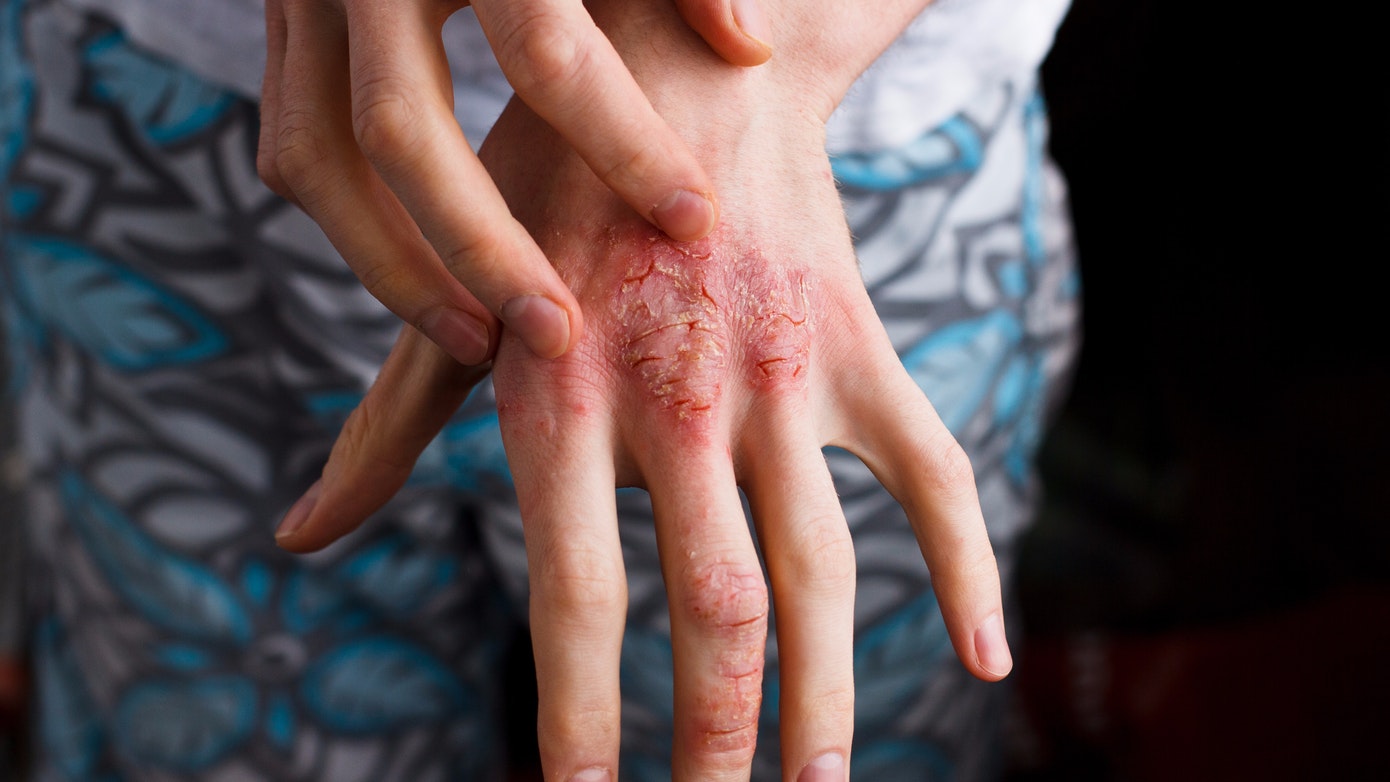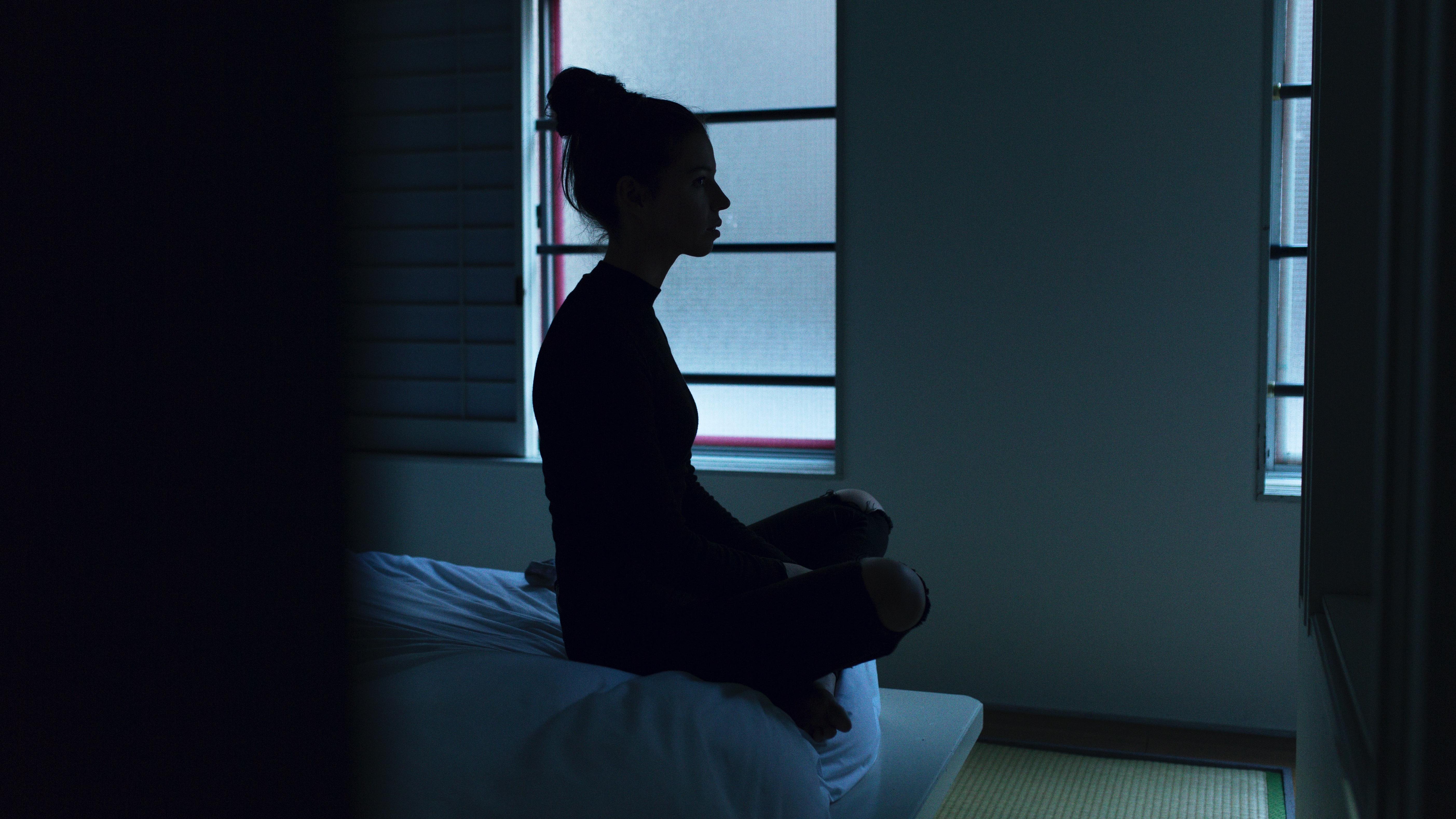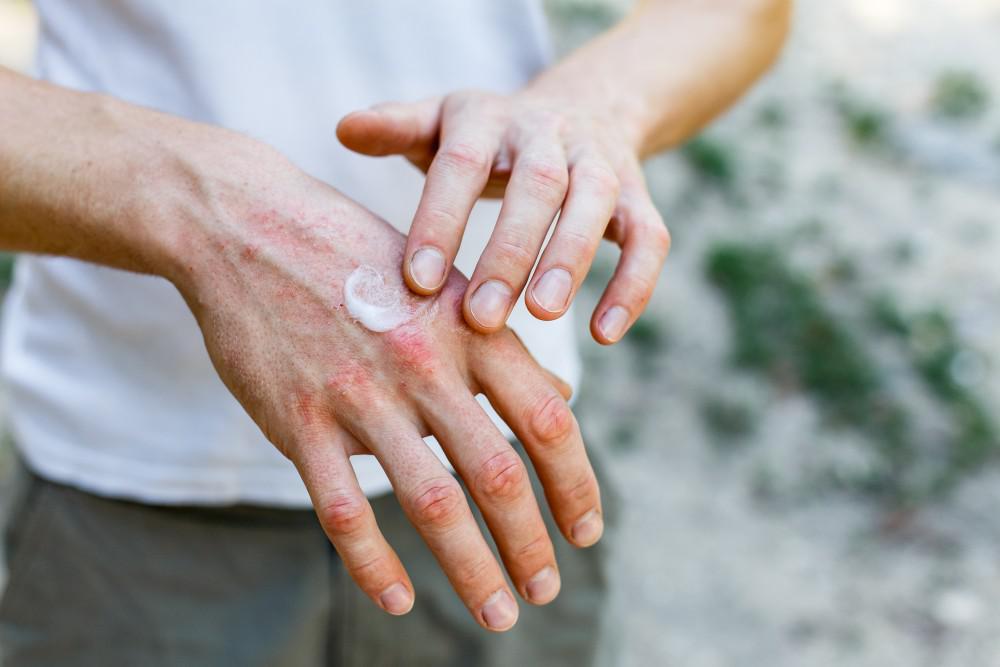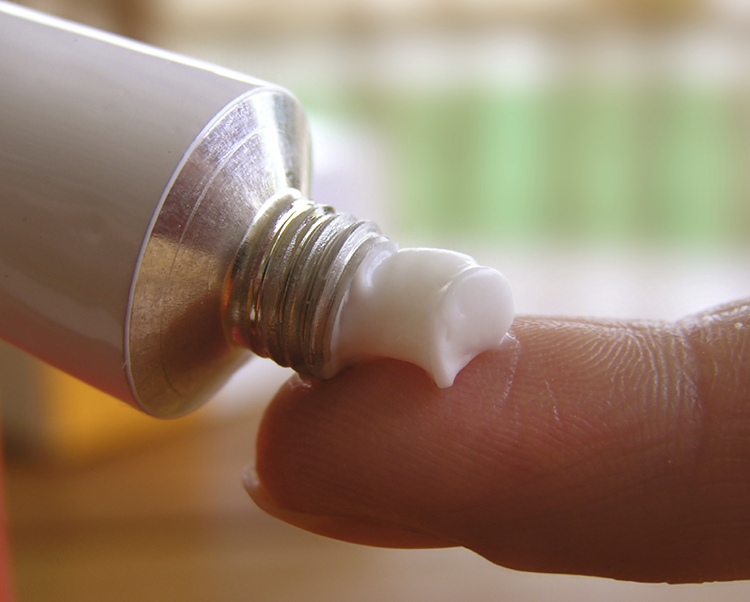Research Shows That Coping With Atopic Dermatitis Can Severely Affect Mental Health
They can leave emotional scars as deep as physical ones, leading to anxiety, loneliness, and depression.
Despite slow-growing visibility and acceptance, mental health continues to be a sensitive topic in our society
What many remain unaware of is that mental health struggles encompass so much more than people think. Other than more common triggers like relationship problems, work stress, and the effects of the pandemic, something like living with life-long conditions can also take a toll on one's mental health.
Those who live with atopic dermatitis (AD), a skin condition, have to battle both physical symptoms and the effects the condition has on them mentally
AD, the most common form of eczema, is a chronic, pruritic inflammatory skin condition that causes dry, itchy, and inflamed skin. Typically affecting the face, neck, arms, and legs, it is common in children but can also occur at any age.
It seems hard to believe that a skin condition could affect someone's mental health, but consider these symptoms and their consequences — restless sleep and poor concentration from the constant itching, dry skin that creates a scale-like appearance, painful, broken skin with scabs that ooze and crust over, and many more.
"Many people only see the visible or physical aspects of atopic dermatitis, but this is a chronic (life-long) skin condition that can leave emotional scars as deep as physical ones," explained Dr Kartini Rahim, a consultant dermatologist.
"Having worked with many patients over the years, I have seen first-hand the emotional distress they go through, from cruel taunts and social isolation in school, to poor confidence at work and problems with intimacy. All these can lead to loneliness, depression, and even suicidal thoughts," she added.
The AD-mental health connection has been extensively researched, with significant findings such as:
- Up to 30% of children experience sleep difficulties¹
- 86% of patients avoid activities or apparel because of AD, such as wearing shorts or going swimming²
- 51% of patients are unhappy and/or depressed when AD flares up³
- 41.9% are embarrassed because of their condition⁴
- 39.3% of young patients have been bullied because of AD⁵
- 33.9% of adult AD patients feel discriminated against at work and 36.6% believe their career is affected⁶
What's more, these symptoms aren't limited to patients themselves. Caregivers and parents also find their sleep, activities, and lifestyle similarly affected, in addition to the emotional impact of constant worry, anger, sadness, embarrassment, and more.
Azura, a banker who was diagnosed with AD at the tender age of three, shares her experience of living with the condition
Throughout her childhood, she remembers having itchy skin that bled when she scratched, leaving bloody spots on her clothes. While it continued into adulthood, her AD was manageable for many years until pregnancy caused it to flare up.
Subsequently, in 2021, she experienced an episode so severe that she was hospitalised for a week.
"Previously, AD had never touched my face, but this time, my entire face was red, swollen, and so painful that it felt like my skin was burning. It was this episode that led to my colleagues discovering that I have AD. I had never wanted to let them know before this, because I knew they would have so many questions and I found it embarrassing," said Azura.
In fact, until then, only her immediate family and siblings were aware of her condition.
Now, Azura is breaking her silence and sharing her story to encourage others to seek medical advice and learn how to manage the symptoms and its impact on daily life
Going into detail about what life is like for her, Azura explained, "You really need to know yourself and your triggers because it's different for everyone. For me, sweat and direct sunlight trigger my symptoms, so when we plan family holidays, I have to make sure that it's not too hot, so no beach holidays for me.
"During the day, I also have to wear cotton clothes so I don't get sweaty and hand socks to protect my skin. The only time I can be 'free' of these things is at night.
"Fortunately, on good days I have no symptoms at all and I can do just about anything. However, on bad days, it's so bad that I have to stay in my room, and use cool wraps and air-conditioning to help bring down the symptoms.
"These serious episodes last around seven to ten days, and during this time, I can't do any housework or cooking. I'm very blessed that my husband is so supportive and keeps things running around the house and with the kids. My kids also understand that they can't bother me when the AD is bad, so they manage themselves instead."
Since there is no cure for AD, the important thing is to properly manage it, just as with any other chronic condition
With well-managed AD, not only does one's quality of life improve, flare-ups are also reduced and complications such as infections can be avoided.
In contrast, poorly managed AD — like if you don't follow the treatment plan or continue to use products that trigger inflammation — can lead to repeated flare-ups, and each episode may become more severe and take longer to subside.
The key to managing AD begins with getting diagnosed. Because of low awareness and many misconceptions, many people self-diagnose and rely on unproven remedies which either do not work or offer only short-lived relief. Sometimes, these remedies worsen their condition. Overall, these factors contribute to delayed diagnosis.
After diagnosis, the most important thing is to work closely with your doctor to find a holistic treatment plan that works for you. According to Dr Kartini, AD can differ from person to person, with different combinations of symptoms, triggers, and treatment options that offer relief.
These options range from non-medicated to pharmaceutical therapies which include⁷:
- Regular application of moisturisers and emollients to soothe itching, reduce infection risk, and help maintain the skin's barrier function
- Topical corticosteroids and topical calcineurin inhibitors to dampen the inflammatory response that occurs during flare-ups
- Wet wrap
- Phototherapy
- Oral medication such as steroids and antibiotics
- Oral or injectable immunosuppressants
There is also another form of treatment known as biologic therapy. It has been found to help many patients with moderate-to-severe AD, who have been unable to find sufficient relief using other forms of treatment.⁸
For Azura, she found her symptoms improving since she began biologic therapy in mid-2021. But even so, she still has to continue being disciplined by moisturising every four hours and avoiding anything that triggers her symptoms.
To sum up, here are the top three most important things people with AD should do:
1. See a doctor and get diagnosed. If necessary, do seek help from a skin specialist.
2. Stick with the treatment plan and give it time to work. AD is a life-long condition that needs to be managed properly, so don't mix your prescribed medications with other products without consulting your doctor.
3. Get knowledge and support from credible sources such as the Malaysian Dermatological Society, as well as patient groups like Malaysia Eczema Society and Malaysia Eczema Support Community on social media. This is an important way to relieve the emotional and psychological burden of living with AD, and thus help with your mental health and wellbeing.
The information provided is for educational and communication purposes only and it should not be construed as personal medical advice. Information published in this article is not intended to replace, supplant or augment a consultation with a health professional regarding the reader's own medical care.
References
¹ Chamlin, Sarah L. The psychosocial burden of childhood atopic dermatitis, Dermagic Therapy, Vol. 19, 2006, 104–107.
² Zuberbier et al. Patient perspectives on the management of atopic dermatitis, J Allergy Clin Immunol, Volume 118, Number 1, July 2006, 226-232.
³ Zuberbier et al. Patient perspectives on the management of atopic dermatitis, J Allergy Clin Immunol, Volume 118, Number 1, July 2006, 226-232.
⁴ Stingeni et al. Atopic Dermatitis and Patient Perspectives: Insights of Bullying at School and Career Discrimination at Work, Luca Journal of Asthma and Allergy 2021:14 919–928.
⁵ Stingeni et al. Atopic Dermatitis and Patient Perspectives: Insights of Bullying at School and Career Discrimination at Work, Luca Journal of Asthma and Allergy 2021:14 919–928.
⁶ Stingeni et al. Atopic Dermatitis and Patient Perspectives: Insights of Bullying at School and Career Discrimination at Work, Luca Journal of Asthma and Allergy 2021:14 919–928.
⁷ Clinical Practice Guidelines, Management of Atopic Eczema, 2018. MOH/P/PAK/393.18(GU). Available at: http://www.moh.gov.my.
⁸ National Eczema Association. Prescription Injectables: Biologics. https://nationaleczema.org/eczema/treatment/ Accessed 26 August 2022.







